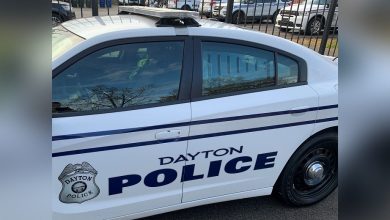
Dayton, Ohio – The pandemic has led to an increased need for local mental health services. Several local law enforcement agencies now working hand in hand with social workers, trying to get people to treatment instead of jail.
Dayton Police data shows attempted suicide, mental health crisis and calls for people with mental health conditions are up 42 percent compared to last year.
Many are repeat callers.
“We would see individuals not often involved with violent crime, that’s not really the contact. The contact is usually nuisance complaints,” said Chief Richard Biehl.
Dayton Police Department is using a grant from a new program and has two mental health workers starting this week.
They ride with officers or respond to non-violent calls alone to get the person on another track besides jail.
“That’s what we’re talking about here: homeless, mentally ill, substance use disorder, sometimes comorbid – having more than one condition,” said Biehl.
Biehl said their Crisis Response Unit has evolved over the last five years. He started a similar program about three years ago with the county’s Alcohol, Drug Addiction, and Mental Health Services (ADAMHS) board.
“We actually received an international award for that. Funding then became an issue and we didn’t do it for a couple of years,” said ADAHMS Executive Director, Helen Jones-Kelley.
Now, Jones-Kelley said all law enforcement agencies in Montgomery County have access to this new program. The calls for their service come through Crisis Care or dispatch.
“We’ve been able to train our dispatchers on how to identify true mental health crisis when people are calling in,” said Jones-Kelley.
Montgomery County Sheriff’s Office started the new program at the beginning of July, hiring specialists from Eastway Behavioral Health.
“Right now, when those two aren’t with our deputies doing ride-alongs, most of the time what they’re doing is looking at what they could have done if they were here, if we had somebody here around the clocks so they’re following up with information from deputies from other shifts,” said Major Matt Haines.
The sheriff’s office said in its first three months of the program, 35 percent of its office’s calls were repeat callers they were able to help.
In one case, it had a person who was jailed 85 times from 2015 to 2019 at the cost of $63,000. He hasn’t been incarcerated a single time in 2020 because he was able to get into these services.
“There’s not enough mental health services anywhere, certainly not in the Dayton area, so this is a good thing and I hope it expands to other law enforcement agencies,” said Haines.
The grant for the sheriff’s office is up at the end of 2020 but Maj. Haines said everyone is on board to renew it.
ADAMHS said it’s also adding a new call center at the beginning of 2021.
It’s called Crisis Now. It will handle these types of calls and determine who should respond and they type of response needed – whether police, social workers, or both.




Leave a Reply